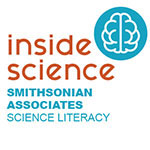Humans have long thought of their bodies and minds as separate spheres of existence. The idea is that the body is physical—the source of aches and pains, for example—while the mind is mental, perceiving, remembering, feeling, and imagining. Although modern science has largely eliminated this mind–body dualism, people still tend to imagine their minds as separate from their physical being. Even in research, the notion of a self that is somehow distinct from the rest of the organism persists.
But such thinking is a barrier to discovery and understanding, and a new framework is needed, argues neuroscientist Joseph LeDoux. He shares his latest research, which says that human beings can be characterized as a composite of four fundamental realms of existence—biological, neurobiological, cognitive, and conscious—that reflect the evolutionary past and account for present ways of being. All four are, deep down, biological. But the neurobiological realm transcends the mere biological, the cognitive transcends the mere neurobiological, and the conscious transcends the mere cognitive. Human beings exist uniquely within our realms every moment of adult life, LeDoux says, and together our realms account for all of what and who we are.
At New York University, LeDoux is the director of the Emotional Brain Institute and a professor of neural science and psychology. His book The Four Realms of Existence: A New Theory of Being Human is available for sale.
Book Sale Information
General Information
